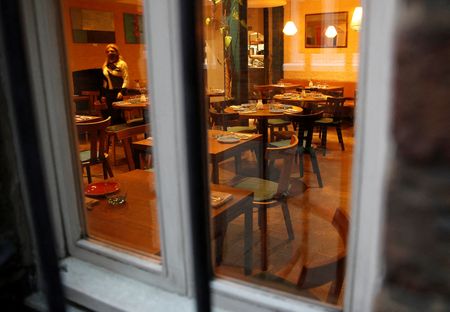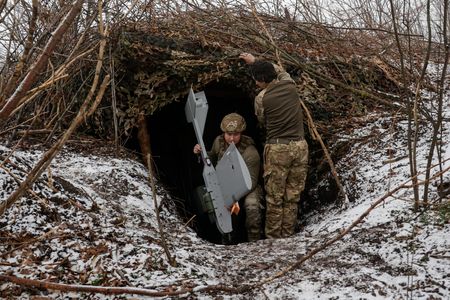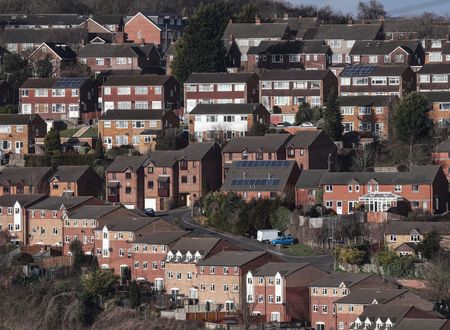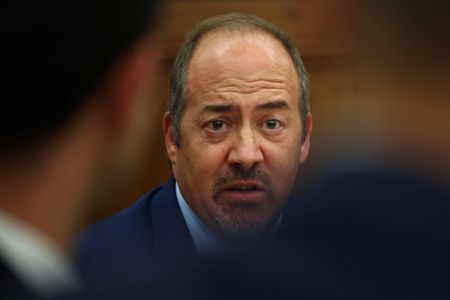By David Milliken
LONDON (Reuters) -Britain saw record levels of staff absence due to COVID-19 around the turn of the year and a slump in restaurant bookings last week, but signs that the Omicron wave has peaked mean the hit to the economy should be reversed soon, economists said.
Across the private sector, 2.7% of staff were absent in late December due to COVID symptoms or self-isolation, the most since the Office for National Statistics began collecting the figures.
The rate rose to 5.5% for hotels and restaurants, and to 6.7% for other services.
The world’s fifth-biggest economy looks on course to shrink in December and January before growing modestly over the first three months of 2022.
“My prior (belief) going into this was that the Omicron hit hasn’t been that large,” said James Smith, UK economist at ING.
“And when I look through the various aspects of the data out this morning, I think that’s still the case.”
Britain’s economy will shrink by a cumulative 0.5% over December and January but grow by around 0.1%-0.2% in the first quarter, Smith said.
Pantheon Macroeconomics upgraded its forecast on Tuesday to show first-quarter growth of 0.2% rather than flat output due to falling COVID cases and the likelihood of a relaxation of England’s COVID-19 restrictions at the end of this month.
Pubs, restaurants and other consumer-facing service industries have born the brunt of the surge in infections.
While the sector did not face new COVID-19 restrictions in England – unlike in the rest of the United Kingdom – many patrons have chosen to stay away.
Some 44% of businesses in the food and hotel sector reported an increase in cancellations in their key month of December, rising to 64% for businesses in the ‘other services’ category which includes firms such as beauty parlours.
Trade body UKHospitality said Christmas Day sales were 60% lower than normal and spending was down 27% on New Year’s Eve.
Data from booking website OpenTable showed reservations in the week to Jan.
10 were more than a third lower than the week before, after adjusting for the time of year.
“Cash reserves are severely depleted, and some businesses will struggle to survive the first quarter of 2022,” UKHospitality chief executive Kate Nicholls said.
However, retailers enjoyed stronger-than-expected sales in the final weeks of 2021.
Supermarkets gained as Britons entertained at home, though they warned of growing inflation pressures.
Recruiters also pointed to inflation pressures ahead as staffing pressures eased only slightly in December from record levels in the autumn.
The Bank of England has warned that inflation will peak at a 30-year high of around 6% in April.
ING’s Smith said falling Omicron cases now pointed to a 50% chance that the BoE would raise rates to 0.5% next month, after hiking rates to 0.25% in December, its first tightening since the start of the pandemic.
But he was less convinced by market expectations that rates would reach 1% by August – above their level before the pandemic – and he saw inflation falling sharply in late 2022 and 2023 if energy price rises level off and second-hand car prices fall.
(Reporting by David Milliken; Editing by William Schomberg and Hugh Lawson)










